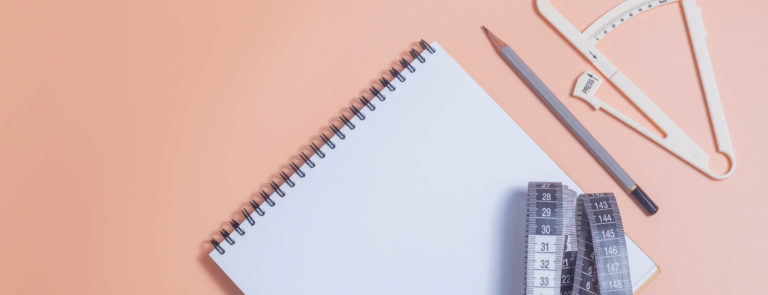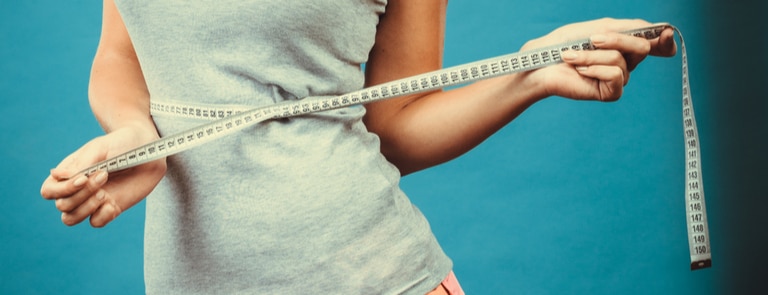What is ‘body fat percentage’ and how do you go about calculating it?
And is body fat percentage similar to body mass index (BMI)?
We take a closer look.
What is body fat percentage?
Body fat percentage is the ratio of fat to total body weight.
It should not be confused with body mass index (BMI), which looks at your height and weight to determine your weight category.
Having
too much body fat can make a person obese, which can increase the risk of health issues such as type 2 diabetes or high blood pressure.
Body fat percentage may have come more into focus recently among health enthusiasts but that is not to say that having body fat is a bad thing.
Everyone has (and needs) fat. There are two types: essential and stored.
Essential fats are important as the body needs it in order to function well.
But the other type, stored fat, is the result of eating too much calories and it is this type of fat that needs to be kept in check.
1
How to measure body fat
A body fat caliper, also known as the pinch test, measures the thickness of the fat underneath the skin.
The device is usually used on the chest or triceps, abdominal area and thighs.
By pinching the skin and pulling the muscle away from fat, the caliper is then able to give a measurement.
The stats can then be inputted into an online calculator, in order to show the percentage of body fat.
While the caliper is a cheap, fast and easy option, it is important to do the test on two measurements for each area.
If you are concerned about accurately using a caliper on your own, then it may be better to consult a qualified health professional.
2
You can also get an indication of your body fat percentage through smart scales.
Women’s body fat vs men’s body fat
To receive an accurate body fat percentage, gender must be taken into account.
Both men and women store fat, which protects organs but, on average, women have a greater body fat percentage.
Women find it particularly challenging to reduce their body fat percentage.
One way to address your body fat percentage is to
ensure that you do not overeat.
The NHS recommends that women consume approximately 2,000 calories a day, while for men it is 2,500.
3
Your health professional may provide you with a guideline on how much body fat percentage you should have based on your gender.
How can you achieve an ideal body fat percentage?
Leading a healthy lifestyle can help you reduce your body fat percentage and get it down to the right levels.
There is no standard body fat percentage – only a range which can depend on your age and fitness level.
To find out if your body fat percentage is in the healthy range for your body type, it is important to measure it.
However, if you have concerns over the accuracy of online calculators, you can always ask your GP for a check-up and advice on how to achieve a healthy body fat percentage.
To decrease your body fat percentage, you should do more exercise, and eat a balanced diet that includes essential vitamins and minerals.
Other ways to measure whether you have excess body fat
The NHS recommends losing weight if your waistline is above a certain measurement.
Bio electrical impedance analysis is another way you can measure body fat
4. Electrical pulses (don’t worry this doesn’t hurt) are sent through the body to calculate how efficiently they run through it.
5Body fat cause more resistance to these electrical currents.
Dual energy x-ray absorptiometry (DEXA)
6 is a type of scan that can also estimate your body fat. While this is one of the most effective ways to measure body fat, it is very expensive to get a scan.
Shop Food & Drink
Last Updated: 18th January 2021
Sources:
1
FatMetabolismandGenderDifferences.pdf (humankinetics.com)
2
https://www.bhf.org.uk/informationsupport/heart-matters-magazine/nutrition/weight/best-way-to-measure-body-fat
3
https://www.nhs.uk/common-health-questions/lifestyle/why-is-my-waist-size-important/
4
https://www.nhs.uk/common-health-questions/food-and-diet/what-should-my-daily-intake-of-calories-be/
5
https://www.nhs.uk/common-health-questions/lifestyle/why-is-my-waist-size-important/
6
https://www.bhf.org.uk/informationsupport/heart-matters-magazine/nutrition/weight/best-way-to-measure-body-fat
7
https://www.nhs.uk/conditions/dexa-scan/



